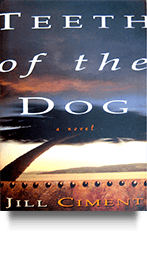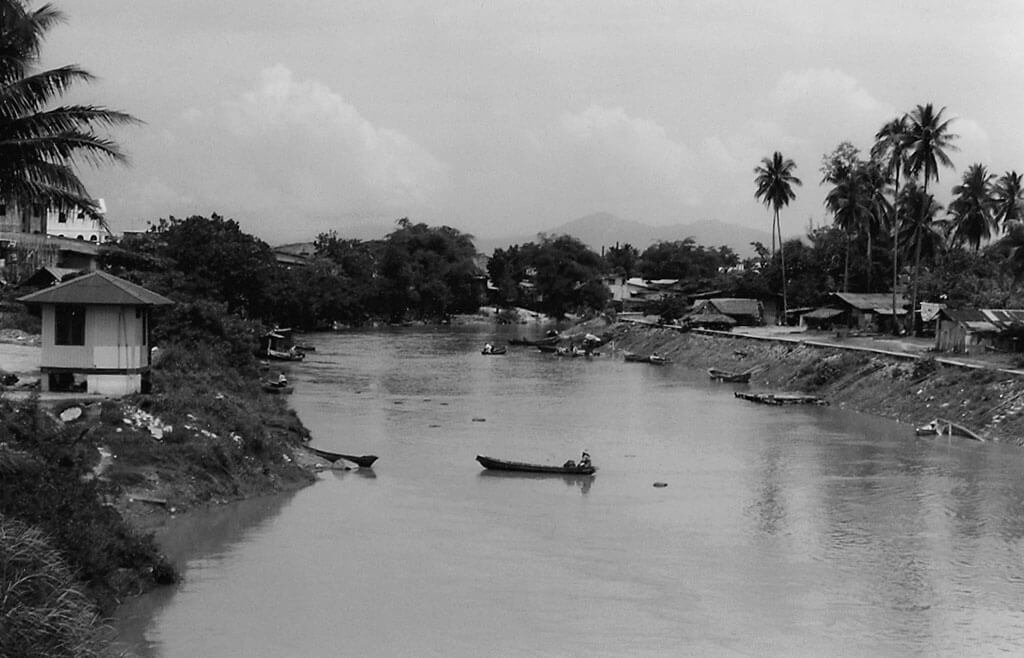On Writing Teeth of the Dog
The novel is such an unwieldy, precarious, jerrybuilt form, that to try to recreate its genesis, bridge its inception to its conclusion is like trying to reconstruct a suspension bridge out of rubber bands.
I had just finished a memoir, Half A Life, and was tired of memories and facts. Most of all, I was sick of writing about myself. As a writer, you either write about what you know, or you write about what you want to know.
Teeth Of The Dog began as a personal and creative dare to myself. Would I have the nerve to write about the unknown in the guise of my deepest fear, the death of my husband, and at the same time, be able to maintain an aesthetic equilibrium?
I chose, or rather, created the island of Vanduu, partly in reaction to my memoir (I not only wanted to skirt facts and memories, I wanted to be the sole creator of the flora and fauna through which my characters would walk), and partly because I wanted to set my personal fears against what Voltaire called world tragedy, the vale of tears. Vanduu, if it existed, would be a lamb-chop-shaped island in the middle of the Coral Sea. Culturally, it would be a sort of Tower of Babel, one of those intense, fragile points on the globe where a jumble of religions touch elbows–Hinduism, Islam, Taoism, Latter-day Saints, Seven-Day Adventists, and Animism. Where religions and cultures vie for space, tragedy is inevitable. Vanduu, like Micronesia and the Philippines (two of several countries that served as blurry blueprints for its creation), would also be where the United States would make an overt attempt at colonization. Thus, the final religion that permeates Vanduu would be materialism.
I tried to design the plot so that it opened like a Chinese box, a truth within a truth within a truth. At first, the problem appears to be that Thomas and Helene, the American couple who have come to Vanduu for a vacation, can’t make love, then that cracks open and we discover that Thomas is ill and may inevitably die, then that diminishes beside his real death, then that seems sad but graspable beside the exploitation and tragedy of the Vanduuans themselves.
My American couple, Thomas and Helene, were cooked up pretty much from scratch, save for one essential ingredient; I gave the couple my own marriage’s age gap, thirty years, and I infused Helene with the knowledge that Thomas will die long before her, that their love is insufferably finite. To concretize this abstraction, I also gave Thomas prostate cancer, thus robbing him not only of his health, but also of his ability to make love to his young wife. Since December/May relationships in literature are mostly written by men, the stories invariably end while the men are still shy of old age and somewhat vigorous. Usually, the stories end while the men are still wildly potent. (Perhaps post-Viagra literature will be different.) Anyhow, I wanted to explore, within the context of a loving marriage, what age and impotency does, and more importantly, how terminal illness wedges an unbreachable gap between lovers and creates a loneliness unprecedented in work-a-day life.
Into this sad mix, I added Finster, a young, perpetually stoned, ex-California surfer who tries to pass himself off as Vanduu’s Miss Lonelyhearts by selling the natives an aphrodisiac perfume that shares the same noxious sweet scent with the cheapest dime store variety. I burdened my young entrepreneur with this quasi-shamanistic profession for two rather different reasons. First, I needed to dramatize the garish allure of American can-do capitalism, and second, the selling of aphrodisiac perfumes in the far-flung corners of Oceania just happens to be my own mother’s business. The Dear Miss Lonelyhearts letters that the natives pen to Finster are very close to the numerous letters my mother has received over the years from lovelorn Melanesians, and Finster’s hopeful counsel is not unlike the advice my mother has written back to these lonely men who desperately–universally–just want to be loved.
Which brings me to what, I hope, is at the core of the book. I wanted to write about love–Thomas and Helene’s deep love for each other, and all the weight that love has to bear, and Finster’s half-baked stoner love for Helene, a love that, despite it being fueled by lust and marijuana, eventually transforms into the genuine article.


